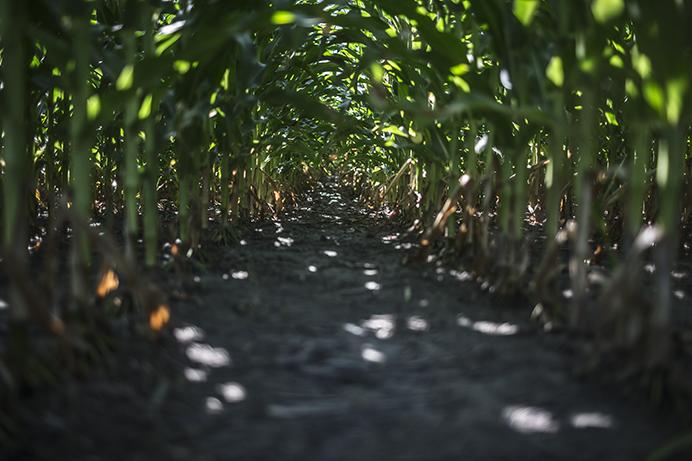Iowa farming practices exemplify a paradoxical and toxic relationship between humans and the environment. Aggressive commercial agriculture saps the vitality from Iowa’s ecosystems, and the repercussions manifest themselves in floods, algae blooms, and those weird emails from the university about questionable water quality. We expect the famously fertile soil to keep supporting our burgeoning monoculture while the land rebukes us, season after season. But one institute strives to circumvent this cycle: the Leopold Center for Sustainable Agriculture in Ames.
Hold your Cyclones jokes, Hawkeyes. The Leopold Center provides valuable services to both farmers and ordinary Iowans. The purpose of the organization, named after none other than Iowa author Aldo Leopold, was to promote and conduct research into sustainable methods of agriculture. Leopold’s famous 1949 treatise on land stewardship, A Sand County Almanac, holds a special place in my heart. I first read the collection of essays during a class on American nature writing and took pleasure in discovering Leopold’s practical, sensitive approach to farming. Though clearly dated and often surpassed by contemporary philosophical perspectives, Leopold’s work still holds pertinent conclusions about environmental responsibility. The central essay in that collection, “The Land Ethic,” offers a vision of human-nature interaction in which farmers are not mere profiteers but caretakers of their fields perennially engaged in a delicate, ethical negotiation for systemic sustainability.
When I learned the Leopold Center did in fact bear the name of this prescient author, I was thrilled to notice that his legacy continued to support pro-environment projects. But my interest came too late.
Turns out the Leopold Center will be dismantled come 2018, barring a veto from Gov. Terry Branstad. The governor has yet to yea or nay the bill, but, regardless of his opinion, Senate File 510 contains the formula for destroying a crucial research institute. In 2018, according to the Des Moines Register, Iowa’s budget will be reduced by $4.3 million across the board. Though the Leopold Center’s funding was augmented by fees on nitrogen fertilizer and pesticides (as stipulated by the 1987 Iowa Groundwater Protection Act), the majority of its monetary support came from state appropriations. Statewide budget cuts, the Legislature concluded, would incapacitate the institute. So, instead of figuring out alternative means to support the Leopold Center, the Iowa Legislature simply decided to shut it down.
This decision reveals a shocking lack of concern for Iowa’s natural resources. Despite recent and pervasive water-quality issues (see my earlier article on the Des Moines Water Works case), state officials seem not to care about ameliorating negative effects of Big Ag. The Leopold Center does — or, should I say, did — just that. As its website explains, the Leopold Center’s research initiatives focused on: “cleaner water, better conservation of natural resources, and greater agricultural vitality.” The great irony in defunding the Leopold Center is this: the organization’s mission emphasizes a harmonious marriage between economics and ecology. The institute fights for “profitable and sustainable farming systems,” taking into account the moral and monetary impacts of every seed and furrow. Just like the farmers it assists, the Leopold Center looks for compromises between human and environmental needs.









